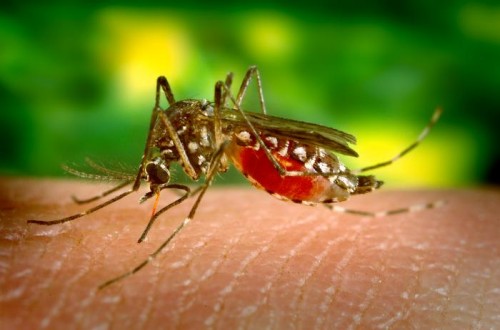On top of the long hours, scorching heat, and other factors challenging food truckers across North Texas, there’s a new danger lurking in the shadows, just beyond your service windows. While customers are feasting on your tasty treats, city officials warn that mosquitoes could be feasting on you!
In an interview with Fox 4 News, Dallas County Health and Human Services spokesman Zachary Thompson reports that, as a result of the steady rise in mosquito populations and cases of West Nile Virus over the last 6 years, the Dallas/Fort Worth Metroplex has become the epicenter for outbreaks of West Nile in the United States.
With 2 confirmed deaths this season and another 70 confirmed cases, Mr. Thompson says that, in spite of the City’s efforts to treat the affected neighborhoods, “we can’t spray ourselves out of this situation” and “there are going to be more deaths” if residents don’t take responsibility to control these populations and protect themselves from being bitten.
As a growing hot spot for the gourmet trend, many DFW food truckers are extending their hours, bringing dinner and late-night options to frenzied fans during peak mosquito hours – from dusk ‘til dawn. Route truck operators serving breakfast and lunch are also vulnerable during the early morning hours when heat-seeking insects are better able to spot them against the backdrop of cooler temperatures.
To protect against the virus, food truckers and their fans should take special precautions when participating in outdoor activities during peak hours from May through October. The Centers for Disease Control (CDC) is closely monitoring these outbreaks and promoting their “Fight The Bite!” campaign, which calls for:
-
Applying Insect Repellent Containing DEET to exposed skin and the outside of clothing
-
Wearing Clothing to cover exposed skin when weather permits (long-sleeved shirts, long pants, socks)
-
Being Aware of Peak Mosquito Hours
-
Draining Standing Water
-
Installing or Repairing Screens
In addition to these recommendations, food truckers may also want to consider the following:
-
Avoiding service locations near areas with standing/stagnant water
-
Emptying/Rinsing pots and pans at the end of each shift
-
Repairing any leaks in the plumbing system (sinks, ice bins, water/waste tanks)
-
Repairing screens/windows and closing them when the truck is not in operation
-
Consulting with event planners and owners of food truck venues to make them aware of the risks
According to the CDC, West Nile is a neuroinvasive disease with an incubation period of 2-15 days and symptoms lasting from a few days to several weeks. While most people infected with West Nile show no signs of illness, approximately 20% will exhibit the following symptoms:
-
Fever
-
Headaches
-
Tiredness
-
Body Aches
-
Skin Rash (on the trunk of the body)
-
Swollen Lymph Glands
-
High Fever
-
Headaches
-
Neck Stiffness
-
Stupor
-
Disorientation
-
Coma
-
Tremors
-
Convulsions
-
Muscle Weakness
-
Paralysis
Educating yourself about the dangers of West Nile and taking precautions to avoid being bitten are the best ways to prevent a life-threatening infection. Always remember to read the instructions before applying insect repellant, and be sure to seek prompt medical attention if you have reason to believe that you might be infected.
Visit the CDC website to learn more about the dangers of West Nile in your area:
https://www.cdc.gov/ncidod/dvbid/westnile/index.htm
Stay safe!




